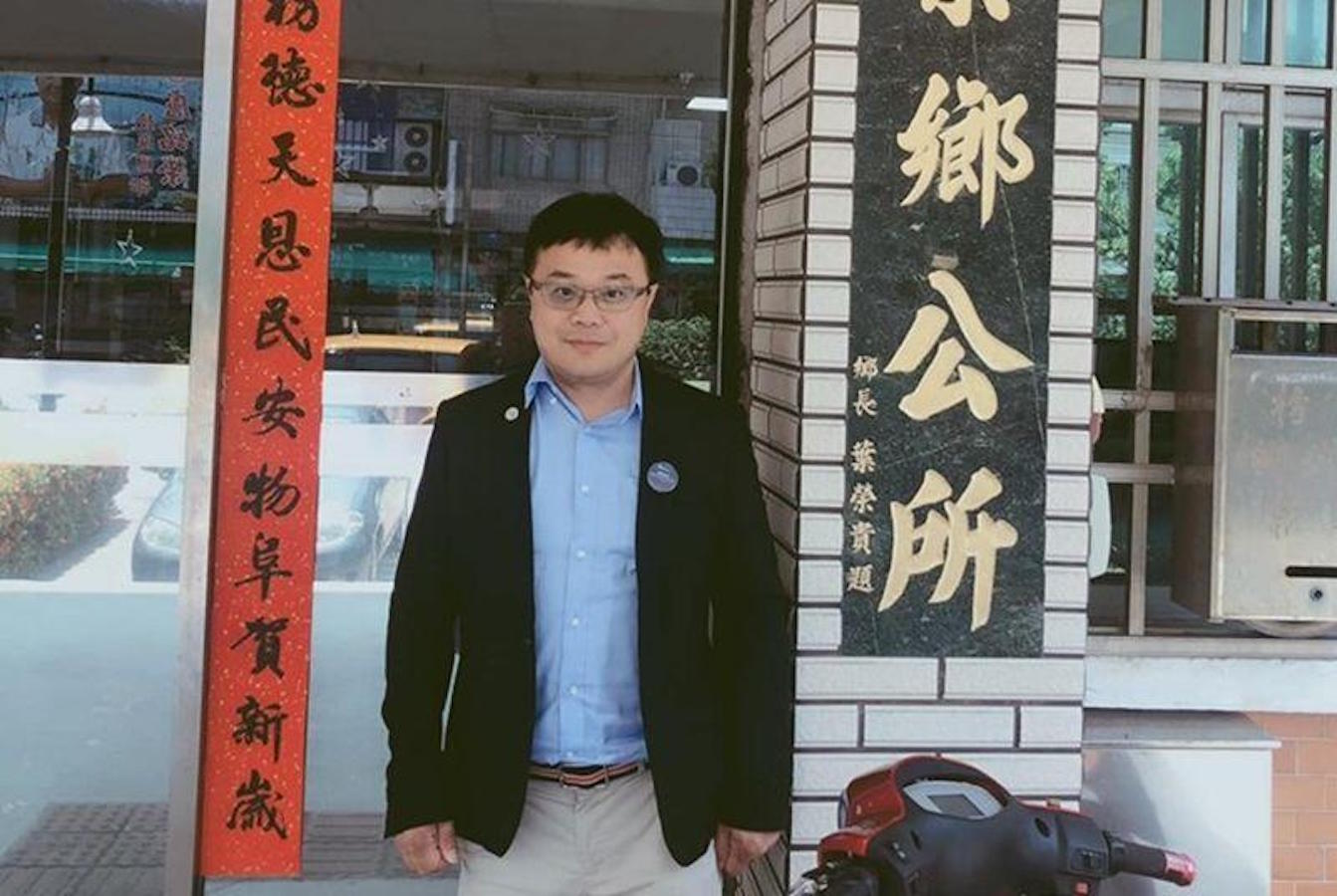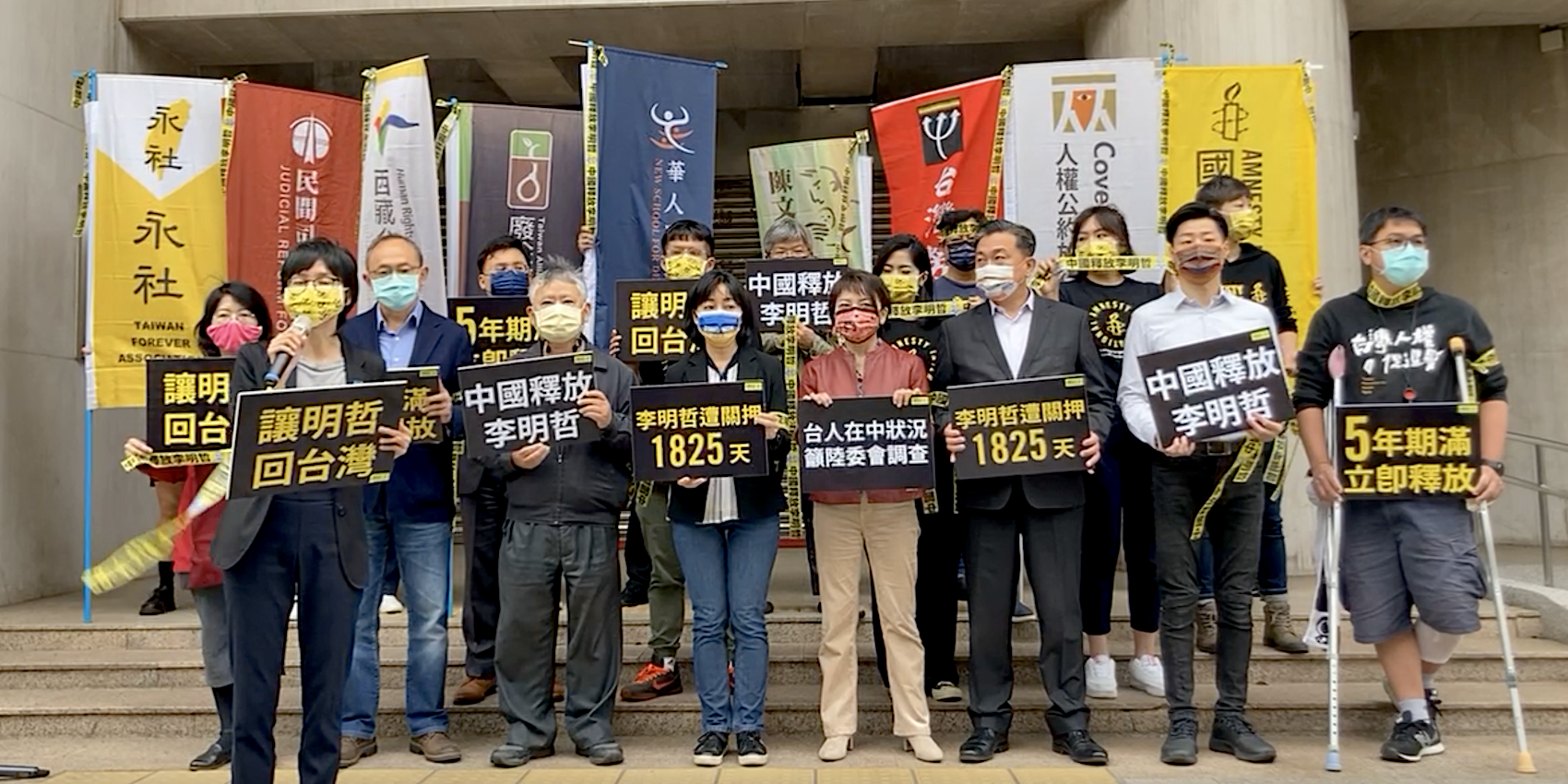by Brian Hioe
語言:
English
Photo Credit: Morrison Lee/Facebook
NEWS THAT Taiwanese businessman Morrison Lee Meng-chu has been freed in China from his jail term, but remains unable to return to Taiwan broke yesterday.
Lee worked as an electronics trader, as well as a volunteer consultant to the mayor of Fangliao, and disappeared after crossing into Shenzhen from Hong Kong. Lee’s detention by China was first reported in September 2019, though Shenzhen authorities initially denied having Lee in their custody.
Subsequently, Lee was sentenced to one year and ten months in jail on spying charges, which has since elapsed. As a result, Lee was freed in China last year. Yet Lee was further deprived of his rights to political participation for two years, as a result of which he was unable to return to Taiwan.
 Morrison Lee. Photo credit: Morrison Lee/Facebook
Morrison Lee. Photo credit: Morrison Lee/Facebook
It is thought that Lee was arrested because he participated in some of the mass demonstrations that took place in Hong Kong in 2019, originally against an extradition bill that would have allowed for Hongkongers to be deported to China to face charges. It was feared that the bill would be used to politically persecute dissidence in Hong Kong.
Lee had photos of the protests on his phone at the time he crossed into China. Likewise, Lee also took photos of Chinese military vehicles amassed in Shenzhen, and sent them to friends. At the time, there were fears that China was amassing military vehicles and paramilitary forces in Shenzhen in preparation for a violent crackdown on the Hong Kong protests.
Morrison Lee’s detention took place in a similar timeframe to the detention of Hong Kong British consulate worker Simon Cheng and may have similarly been intended as a warning. At the time, Lee appeared on television and made a televised confession that was likely forced, claiming to be a spy, in a period in which the Chinese government claimed to have captured “hundreds” of Chinese spies.
When foreigners are arrested in China, they are normally deported back to their home countries after serving their sentence. Foreigners have no rights to political participation that they could be deprived of, to begin with, and so are sent back after the end of their term. But the situation is more complex regarding Taiwanese, since the Chinese government does not regard them as foreigners, given China’s claims of sovereignty over Taiwan.
However, as detained Taiwanese human rights advocate Lee Ming-che–the most high-profile case of a Taiwanese detained by the Chinese government on political charges–neared the end of his five-year sentence last month, there were warnings from civil society organizations active in campaigning for his release that Lee might not be allowed to return to Taiwan after the end of his term. Namely, Lee also had his rights to political participation deprived after the end of his jail sentence.
In light of the fact that Morrison Lee was not allowed to return to Taiwan, these warnings can be more easily understood. Generally speaking, there are few precedents regarding detentions of Taiwanese in China on political charges. Lee Ming-che, however, was allowed to return to Taiwan earlier this month.
According to a report by Taiwanese government-run news agency CNA, the Taiwanese government was aware that Morrison Lee was free in China, but that he was not allowed to return to Taiwan, and has sought to provide assistance. The government kept a low-profile regarding the matter and may not have wanted widespread reporting on Morrison Lee’s continued detention in China until Lee Ming-che was allowed to return to Taiwan. The Chinese government’s Taiwan Affairs Office later confirmed that Morrison Lee was serving an additional charge in China.
 Demonstration calling for Lee Ming-che’s release. Photo credit: 尋找李明哲/Facebook
Demonstration calling for Lee Ming-che’s release. Photo credit: 尋找李明哲/Facebook
Morrison Lee’s continued detention in China, then, raises the possibility that being deprived of rights to political participation may be used as a pretext to keep Taiwanese detained in China, even after they have served their jail terms. This may apply to individuals facing political charges or Taiwanese serving in China under other charges.
More broadly, it remains opaque as to how many Taiwanese are currently detained in China. In 2019, Taiwan’s Mainland Affairs Council reported that there were 149 Taiwanese citizens missing in China, and that it was unable to confirm the whereabouts of 67 of them. Despite China’s claims of having captured “hundreds” of Taiwanese spies, this is unlikely, as hundreds of missing Taiwanese would have likely since been reported.
But at the same time, other Taiwanese known to be imprisoned in China include academics Shih Cheng-ping and Tsai Jin-shu, who were both members of the pan-Blue camp. Tsai was an active promoter of unification. News of Shih and Tsai being detained in China broke in a similar timeframe to reports of Lee’s detention, and shows that China also detains individuals with pro-unification views. Details on the number of Taiwanese prisoners in China remain murky then.

